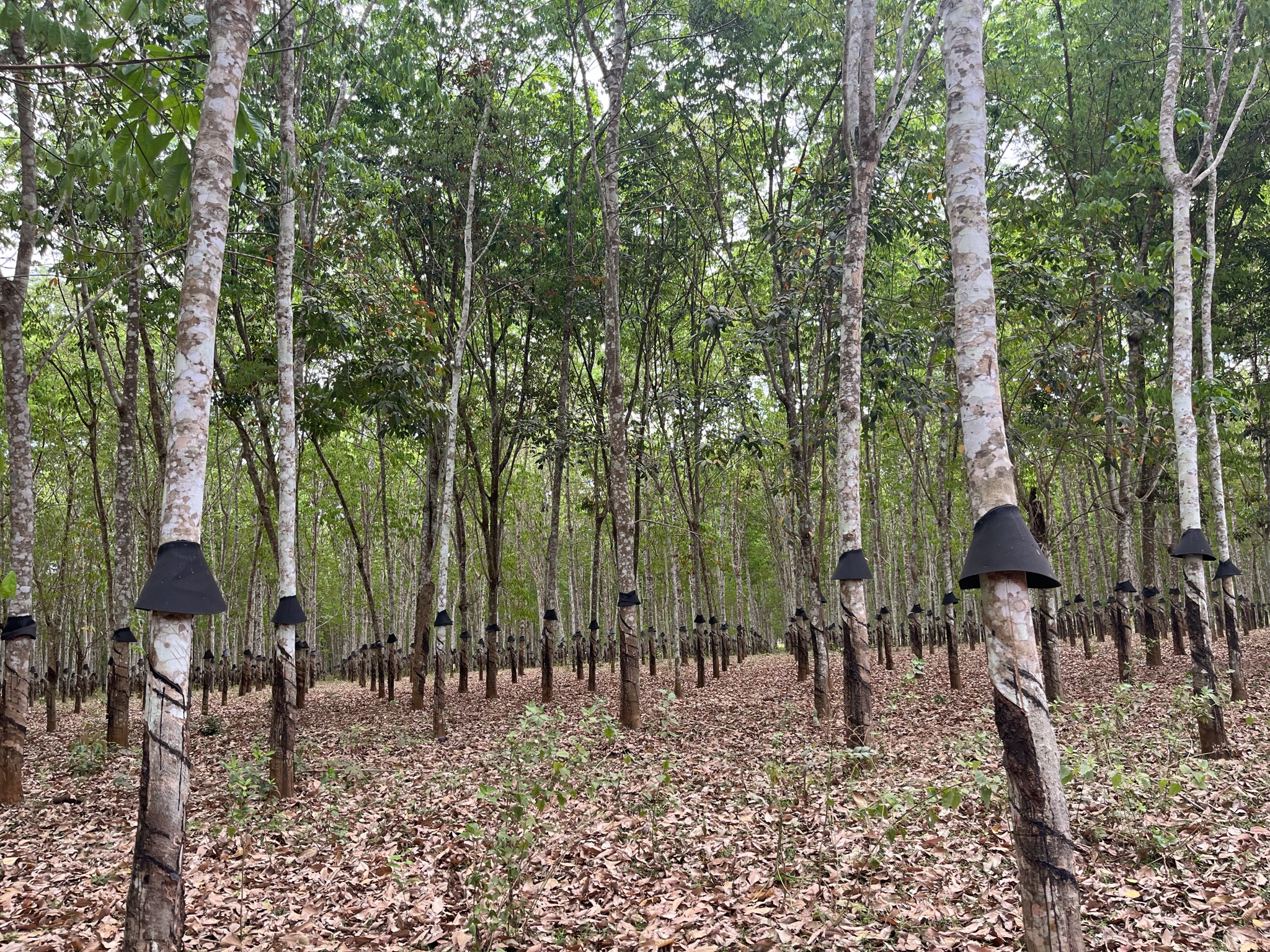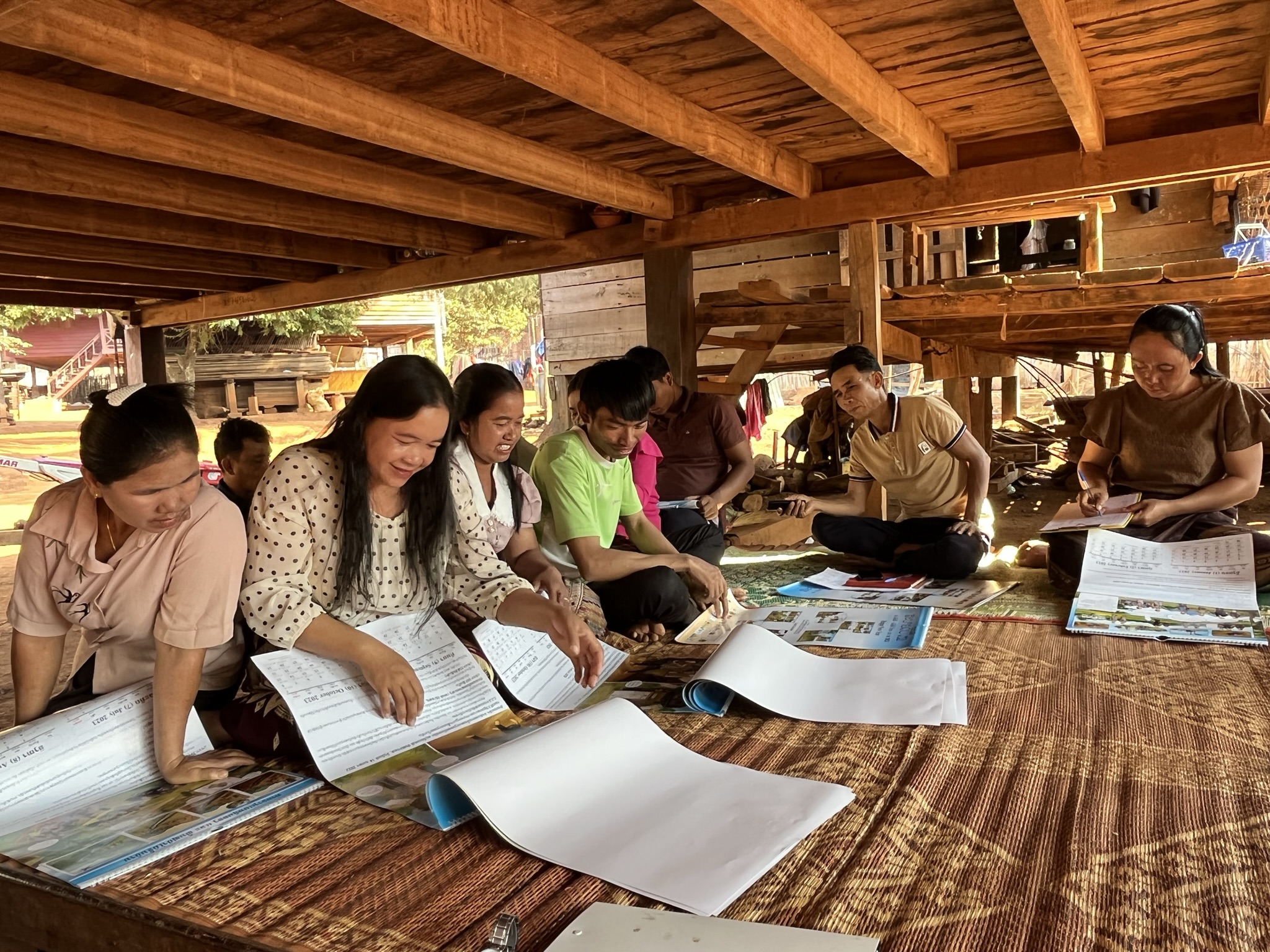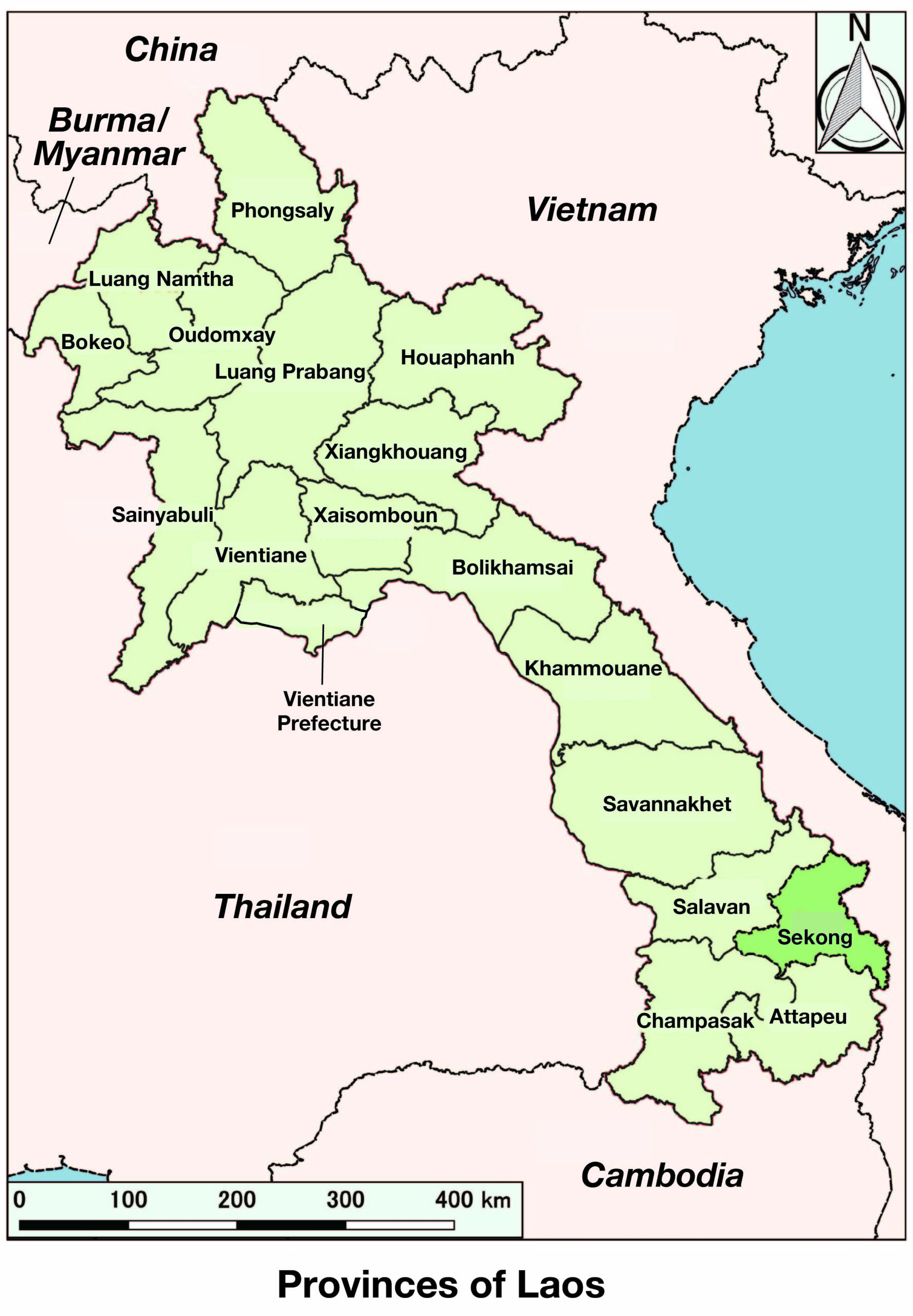[Originally written by Miki GOTO and published in the JVC Newsletter “Trial & Error” (No. 353, April 20, 2023); Translated by Y. Miki/A. Turner]
JVC’s Laos project relocated its base of activities from Savannakhet Province to Sekong Province in the southeastern part of the country last year. As rich natural resources are in danger of disappearing due to large-scale development and the cultivation of cash crops, we are engaged in activities that allow residents to manage and use these natural resources on their own. In February 2023, I made a business trip to Sekong, and would like to share with you some of their activities and the town around the local office.
Supermarkets that don’t require money
More than 60% of the population still lives in rural areas in Laos. Lao forests are called “moneyless supermarkets,” where people live a subsistence lifestyle relying on the rich natural environment by gathering the woodland products and fish from the forests and river around them. The gifts of nature are the foundation of the residents’ lives, as they earn cash income by selling their harvests. Sekong is the second smallest province in Laos and one of the poorest regions.
While the rich nature remains, the region still experiences problems with development projects such as large-scale corporate plantations and continuous crop failure due to cultivation of cash crops like cassava. In some villages, about half of the village area has been turned into rubber plantations by businesses. In others, farmable land is lost by the villagers themselves as they are pressured into growing cassava for money to sustain their livelihood. Excessive economic development has been causing serious negative impacts for villagers who depend on the blessing of nature for their living. Sekong was chosen as the new activity site because it has been getting relatively less attention in the country and there have been fewer support projects.

Plantation development by Vietnamese companies is also taking place just outside of the village.
Women who are responsible for forest work are the ones who participate in the activities
The project in Sekong focuses its activities on “management and use of shared resources” and places importance on “resident-oriented” activities. In August 2022, the local office welcomed a new local staff member, Phililack, with a total of four members: Ryohei Yamamuro, the local representative, Houmpham and Kino, the project officers. JVC is now working in 10 villages in La Mam district and Tha Teng district, and frequently visits them for discussions and other activities. In implementing a system for sustainable management and use of the village’s shared resources, we discuss this with the villagers and choose the most appropriate system for their village. In 2022, community forests and fish conservation areas were established in two villages, and ceremonies were held with neighboring villagers and administrative officers.
In rural areas of Laos, women are rarely seen in such discussions and gatherings due to culture and customary. However, we told them that it is meaningful to have many villagers participate and take the initiative in the activities, since women are mainly in charge of harvesting mushrooms and other wood products in the forests. Now more women started participating and the members of the community forest patrols that have been set up also include women.

Explaining the legal calendar in Toksaming village, La Mam district, Sekong province. The woman on the right is the only female village head among our active villages.
Use of the legal calendar
In February 2023, JVC distributed the legal calendar that described the villagers’ rights regarding shared resources. During the explanation and distribution of the calendars, villagers showed strong interest, as they commented and asked questions about the rights and laws mentioned in the calendars. Some said, “It is a valuable calendar that contains important information. I am afraid it will be torn, so it is such a waste to hang it, even though it is a calendar”.
Not only JVC is carrying out activities while bringing out the initiative of the villagers through communication centered on daily discussions but also this calendar is used as a practical training tool to help villagers acquire skills in dealing with development issues.
Their lives “relying on nature” can also be seen around the town
From here, I would like to introduce some of the charms of Laos that I experienced during my business trip. Many people in Laos like to have drinks, and alcoholic beverages are an essential part of gathering. When I visited a village, the village head treated us to his homemade sake made from rice and at lunch time they welcomed us by preparing Lao beer, Beerlao.
Around our office, most restaurants close after 6:00 p.m., but some are open until late. At one restaurant, people were enjoying drinks while listening to live music, and some even jumped on stage to perform a song. It was lively with many people enjoying the drinks and atmosphere until late at night.
Also, many people like to sing karaoke, and the singing voices that came from various restaurants and bars while I walked outside at night left a lasting impression. There seem to be many Thai songs, and the atmosphere is somewhat like Japanese traditional songs of the Showa period. In Japan, you recently often hear a coined word, “nominication”, which refers to the Japanese culture of getting to know someone over drinks, I recognized once again that nominication is not only a tool to have a good time together and deepen friendships but also an important part of the culture in Laos.
Furthermore, talat (market) is just a few minutes away from the office. The market is literally lined with fresh fish, vegetables, raw meat, frogs, and lizards (I wonder how they cook them) and was busy with many people in the evening time. It allowed me to see in person what “living dependent on nature” looks like.
As mentioned above, Sekong has been suffering from the negative impacts of excessive development projects and the loss of shared forests and lands due to debts incurred from the cultivation of cash crops by the residents themselves. I hope that you will get a sense of the problems facing Sekong and the village through JVC’s activities and this article.

